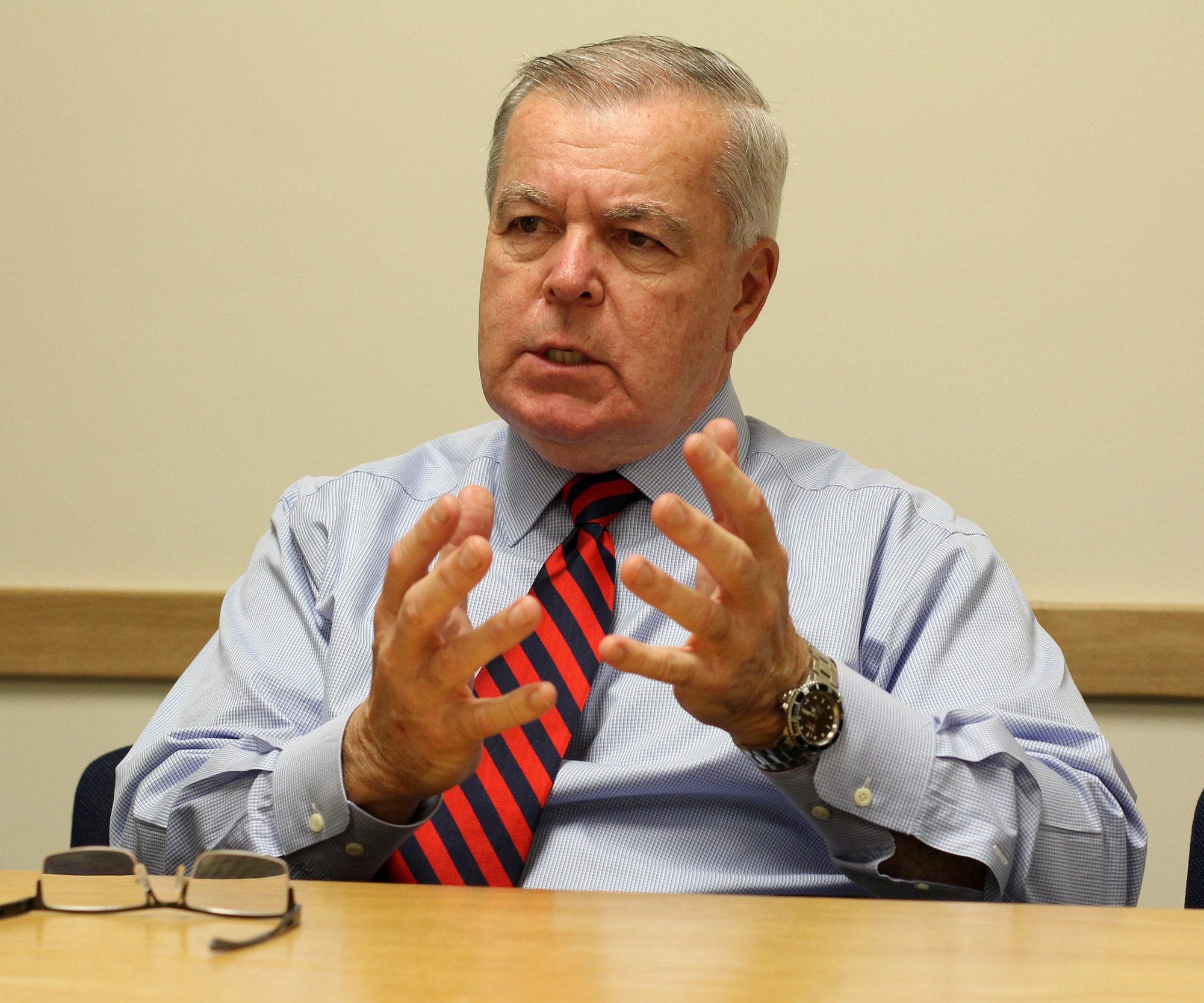Item Photo By OWEN O’ROURKE
NSMC President Robert Norton has his opinion on what to do with Union Hospital.
By BRIDGET TURCOTTE
LYNN — The Department of Public Health will hold a determination of need hearing with North Shore Medical Center Thursday at 4 p.m. at Lynn City Hall.
Residents are encouraged by City Councilor Dan Cahill to attend the hearing to show their opposition or support to possible changes or closure of the hospital.
“There have been a lot of concerns, primarily with the elderly population having access to health care,” Cahill said.
Cahill said other major concerns include how the change could impact those battling the opioid epidemic and what will happen with behavioral health and health-care services.
“People are concerned with whether Partners is going to continue to operate an Emergency Care department beyond a three-year commitment,” he said. “And they’re concerned with access to health care, whether it’s convenient or expedient. Folks want to be able to see their physicians without being inconvenienced by timing or by location.”
“I’m curious to know how Partners plans to service the city,” Cahill said.
Robert Norton, president of North Shore Medical Center, said he firmly believes the changes would mean better care for NSMC patients.
Norton said he hopes the hearing will lead to getting the state’s approval to consolidate health care, acute care, and behavioral health services to Salem Hospital.
“Care could be of the best quality, if we could consolidate,” Norton said.
“If there’s one thing I’d like people to understand, it’s that care would be better than it is today three to five years down the road,” he said.
“The nature of health care has been changing,” he said. “Patients who end up admitted to the hospital these days are much sicker than in the past.”
Norton said technology has become a big factor for health care and is shifting care to medical offices and outpatient facilities. The care that remains at the hospital tends to be more specialized, he said.
The majority of patients use the hospital for outpatient visits, he said.
The consolidation plan calls for building new emergency services at Salem Hospital, he said. It’s a project expected to take 3½ years once it receives approval.
Hospital-based medical, surgical, and behavioral health care would be consolidated into a single inpatient facility in Salem. Care would become more coordinated, he said.
During the 3½ years of construction, Union Hospital would remain open and access to emergency care would not be changed, he said.
“We’re not in any way denying our obligation to care for our patients,” Norton said. “By providing our care in this new model we believe we can provide better care than we can today. It’s a complex set of changes.”
Thursday’s hearing will be conducted in a testimony format, he said.
“Our goal in the hearing is to make a brief statement, but we’re also there to listen,” Norton said.
“My intention is to raise the numerous concerns that have been expressed to me by residents, employees, and businesses regarding the proposed change of services and apparent eventual closure of Union Hospital,” Cahill said.
“We need to ensure that our transportation needs are met, that workers are treated fairly, (and) if there is a new delivery system for health care, that there’s adequate staffing for the many different cultures that live in the city and deserve as much access to quality healthcare as anyone else,” he said.
Cahill said the City Council requested the meeting be held in the City Hall Auditorium rather than council chambers to accommodate more of the public.
“I think the residents of Lynn understand the importance of this issue,” Cahill said. “Their participation at the hearing will be critical. If no one shows up, the Department (of Public Health) is going to think it’s not an important issue for the city.
“We need people to show up,” he said. “The decision is in the department’s hands right now.”
“I recognize completely the concerns,” Norton said. “Change is hard for everybody. We’re doing the best we can to help people understand that it not only won’t affect them adversely, but the quality of care will improve.”

